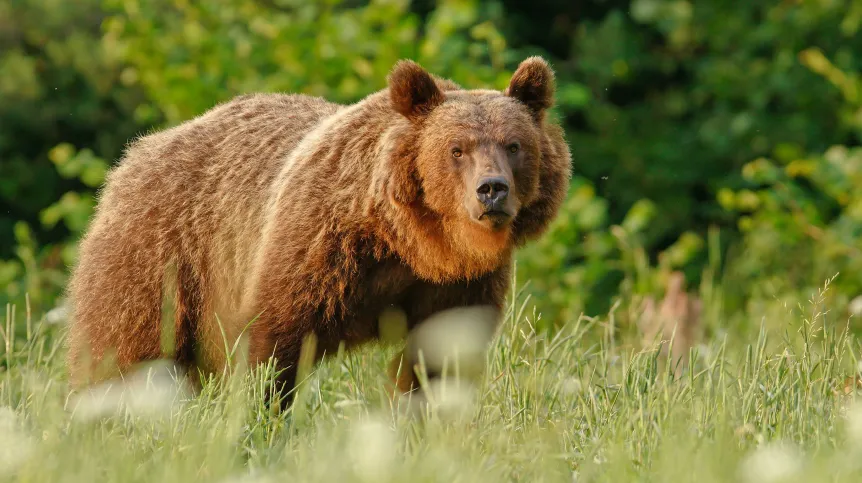
Despite tick-borne diseases detected in brown bears, scientists have always been interested in why they do not find large numbers of ticks on the animals' bodies. Now they have established that the resinous substances leaking from trees can provide a natural protection against ticks. The study described in the Journal of Zoology was conducted in Poland.
Co-author Agnieszka Sergiel from the Institute of Nature Conservation PAS told PAP: “Bears use trees as bulletin boards. A scent is an individual signature. They use it to communicate an abundant source of food and let each other know who is where. The scent also varies by gender and age. Younger individuals may rub in places where older, dominant individuals have left a mark. This may help them function safely. Different parts of the body also smell differently.”
She added: “The idea of the added benefit of rubbing against resin trees has been around for some time. When rubbing, bears stimulate the secretion of resin by scratching and gnawing at the bark, so these substances end up on the fur. We decided to check how turpentine and beech tar that contain substances from resin trees and stimulate bears to scratch themselves affect ticks.”
Scientists placed meadow ticks (Dermacentor reticulatus) in silicone tubes. The tested substances were placed on filter paper, turpentine or beech tar at one end and distilled water at the other end. It turned out that the ticks would consistently flee towards the neutral substance (distilled water).
With advancing climate change, ticks are spreading both geographically and environmentally. They are also active over longer periods, because the warmer climate favours it. This has led scientists to look for new ways of protection against their bites and the spread of diseases carried by these parasites. The latest findings on the behaviour of bears and their natural protection against ticks could prove helpful.
Find out more in the source material. (PAP)
PAP - Science in Poland, Urszula Kaczorowska
uka/ agt/ kap/
tr. RL













